Understanding the Human Body: Sex Education for Teens
Understanding the human body is crucial for both kids and adults to lead a better life in the long run. awareness and sex education,
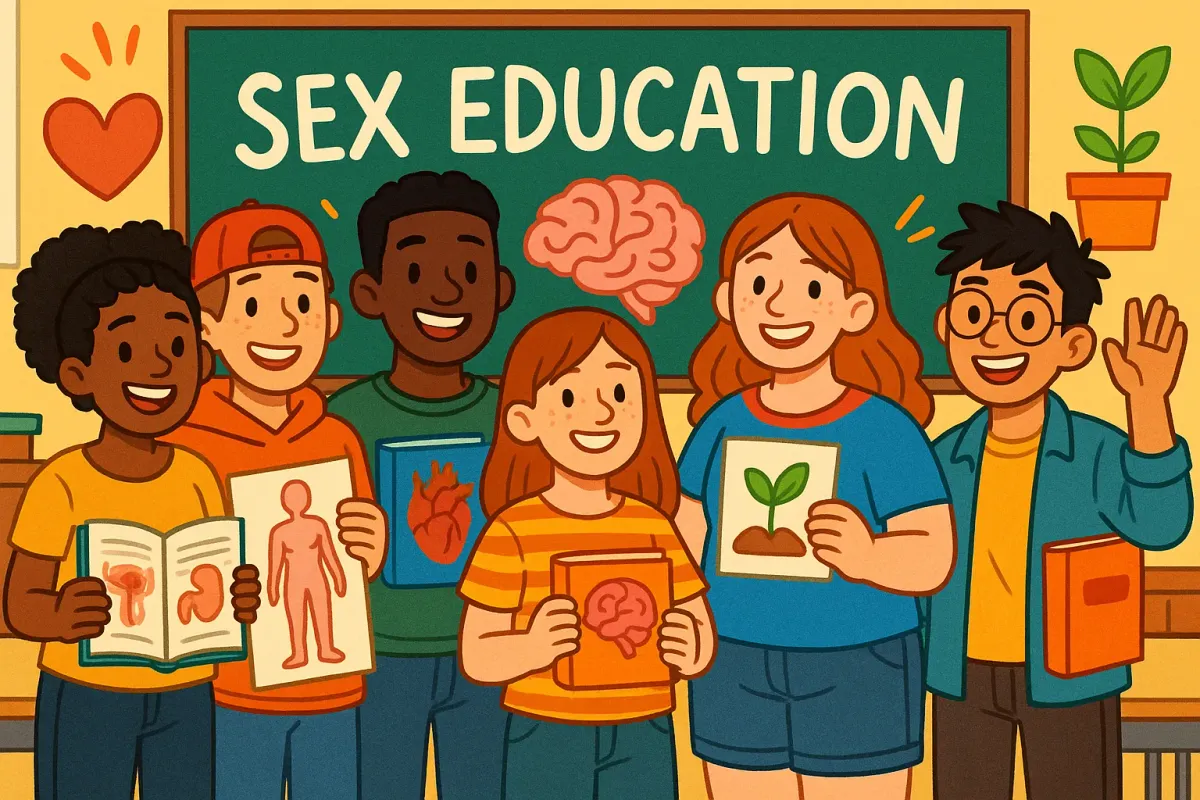
Understanding the human body is crucial for both kids and adults to lead a better life in the long run. This article is designed to provide an easy-to-understand introduction to body awareness and sex education, even for those as young as 14. We’ll explain every single term in simple language so you can understand what’s happening with your body and why. Let’s dive into the topics!
1. Human Anatomy and Physiology
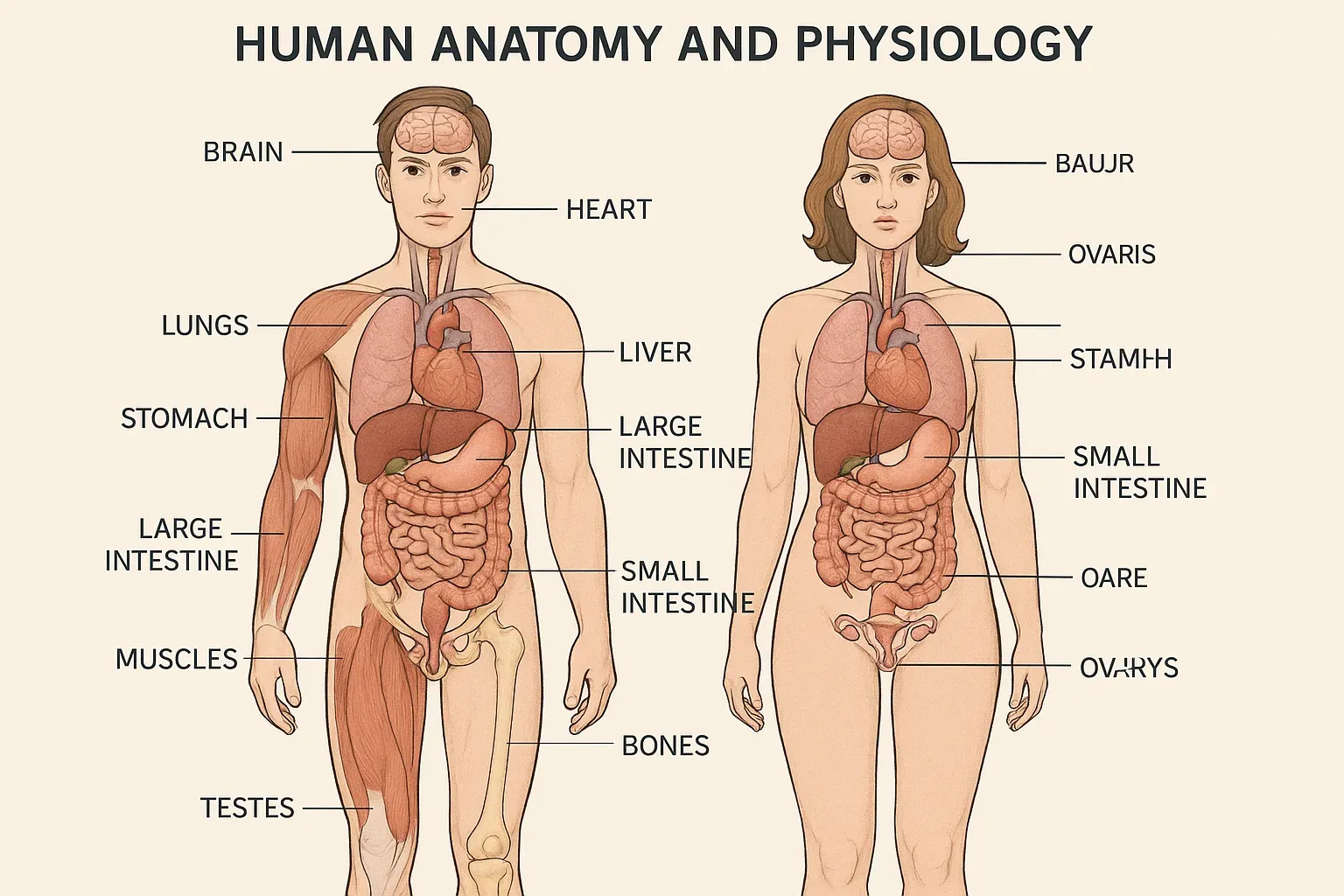
This is about how your body is built and how it works, especially the parts related to growing up and making babies. It includes big changes like puberty that happen as you become a teenager.
- Reproductive Systems: These are the body parts that help humans make babies. For girls, this includes the ovaries (small organs in the lower belly that hold eggs, tiny cells needed to start a baby), the uterus (a pear-shaped organ where a baby grows during pregnancy), and the vagina (a tube-like path from the uterus to outside the body). For boys, it includes the testes (two small organs in a sac called the scrotum that make sperm, the male cells needed for a baby) and the penis (the organ that releases sperm and urine). Each part has a special job to help create life or keep the body healthy.
- Puberty: This is the time when your body changes from a kid’s to an adult’s, usually between ages 10 and 16, but everyone’s timing is different. Your brain sends signals to release hormones (chemicals that act like messengers) to start these changes. These hormones prepare your body for adulthood, including the ability to have kids someday. You might feel excited, confused, or even a little embarrassed about these changes—that’s totally normal because everyone goes through it!
- Physical Changes in Girls:
- Breast Development: Your chest starts to grow breasts, which are glands that can make milk if you have a baby someday. They might grow at different rates, and it’s normal if they’re uneven for a while.
- Menstruation (Period): This is when blood and tissue leave the uterus through the vagina about once a month if there’s no pregnancy. It usually starts between the ages of 11 and 14. A period shows your body is preparing for the possibility of pregnancy, but it doesn’t mean you’re ready to have a baby.
- Body Hair: You’ll grow hair under your arms (armpit hair) and around your private parts (pubic hair). This hair protects your skin and is a normal part of growing up.
- Body Shape Changes: Your hips might get wider, and you might gain a little weight as your body stores more fat. This is how your body gets ready for adulthood.
- Physical Changes in Boys:
- Voice Changes: Your larynx (voice box in your throat) gets bigger, making your voice deeper. This is called voice cracking because it might sound squeaky or uneven for a while.
- Body Hair: Boys grow pubic hair and armpit hair, just like girls. You might also get facial hair (like a beard or mustache) and hair on your chest or legs.
- Genital Growth: The penis and testes get bigger as your body prepares for adulthood. The testes start making sperm, which are needed to make a baby.
- Muscle Growth: Boys often get stronger and more muscular because of testosterone, a hormone that helps build muscles and deepen your voice.
- Changes for Both Girls and Boys:
- Growth Spurt: You’ll grow taller and bigger quickly. Your arms, legs, and whole body stretch out, sometimes making you feel clumsy for a bit.
- Skin Changes: Your skin might get oily, leading to acne (pimples or zits) on your face, back, or chest. This happens because sebaceous glands (tiny oil-making glands in your skin) are more active during puberty.
- Body Odor: You might sweat more, and it smells stronger because your sweat glands (parts of your skin that make sweat) are working harder. Showering and using deodorant (a product to stop body odor) can help.
- Hormonal Changes: Estrogen (more in girls) helps with things like starting periods and growing breasts. Testosterone (more in boys) helps with muscle growth and deeper voices. Both hormones drive most puberty changes.
- Physical Changes in Girls:
- Emotional Changes:
- Mood Swings: Hormones can make you feel happy one minute and sad or angry the next. These quick changes in feelings are called mood swings and are super common.
- Crushes and Attraction: You might start having a crush (a strong liking for someone) or feel attracted to others. This is your brain and body starting to think about relationships.
- Self-Consciousness: You might worry about how you look or if you’re “normal.” Everyone feels this way sometimes, and it’s okay to talk to a trusted adult about it.
- Understanding Your Body’s Timing: Some kids start puberty earlier or later than others. If your friend is taller or has more changes, don’t worry—your body has its own schedule. If you’re curious or worried, talk to a parent, doctor, or school nurse.
- Hormones: These are chemicals that tell your body what to do. Estrogen (in girls) helps with periods and breast growth. Testosterone (in boys) helps with muscle growth and deeper voices. Progesterone (mostly in girls) helps control periods and supports pregnancy. They’re like the body’s instruction manual for growing up.
- Hygiene and Self-Care: With puberty, you’ll need to keep your body extra clean because of more sweat and oil. Shower regularly, wash your face to prevent acne, and brush your teeth to keep your breath fresh. For girls, use pads or tampons (products to catch period blood) during menstruation to stay comfortable and clean. Eating healthy foods, exercising, and sleeping enough help your body handle all these changes, like giving it the fuel it needs to grow.
2. Reproduction and Conception
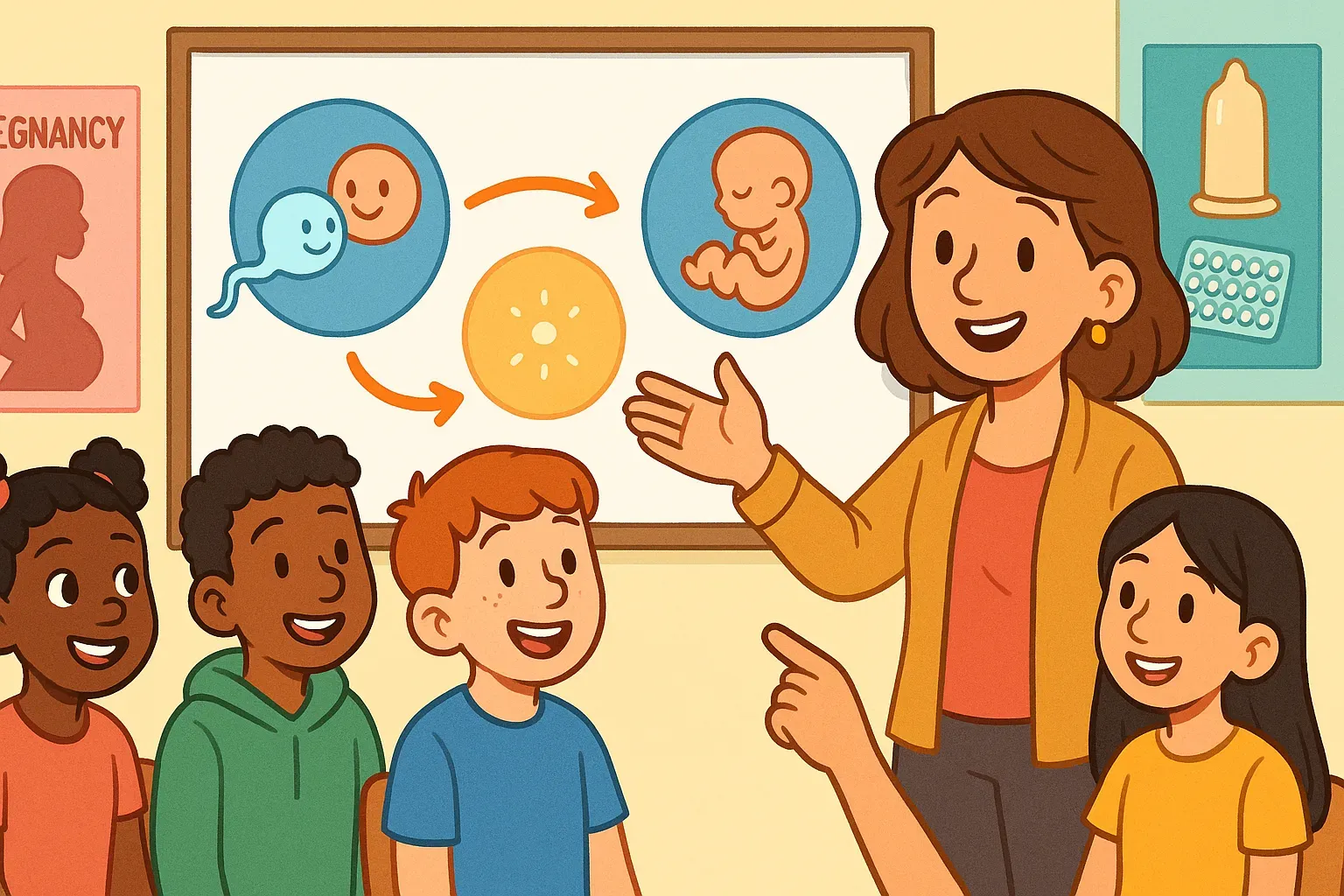
This is about how babies are made and what happens during pregnancy.
- Fertilization: This happens when a sperm (a tiny cell from the male) joins with an egg (a tiny cell from the female) inside the woman’s body, usually in a tube called the fallopian tube. This creates the start of a baby.
- Pregnancy and Development: Pregnancy is when a baby grows inside the uterus for about 9 months. It starts as a tiny group of cells called an embryo, which grows into a fetus (a more developed baby) with a heart, brain, and body parts. By the end, it’s ready to be born.
- Contraception: These are ways to prevent pregnancy. Condoms are like a thin cover for the penis (or sometimes inside the vagina) to stop sperm from meeting the egg. Birth control pills are medicines girls take daily to stop the ovaries from releasing eggs. IUDs (intrauterine devices) are small devices placed in the uterus to prevent pregnancy. Natural methods involve tracking when a girl might release an egg to avoid sex then. Each method works differently, but condoms also help prevent diseases.
3. Sexual Health and Hygiene
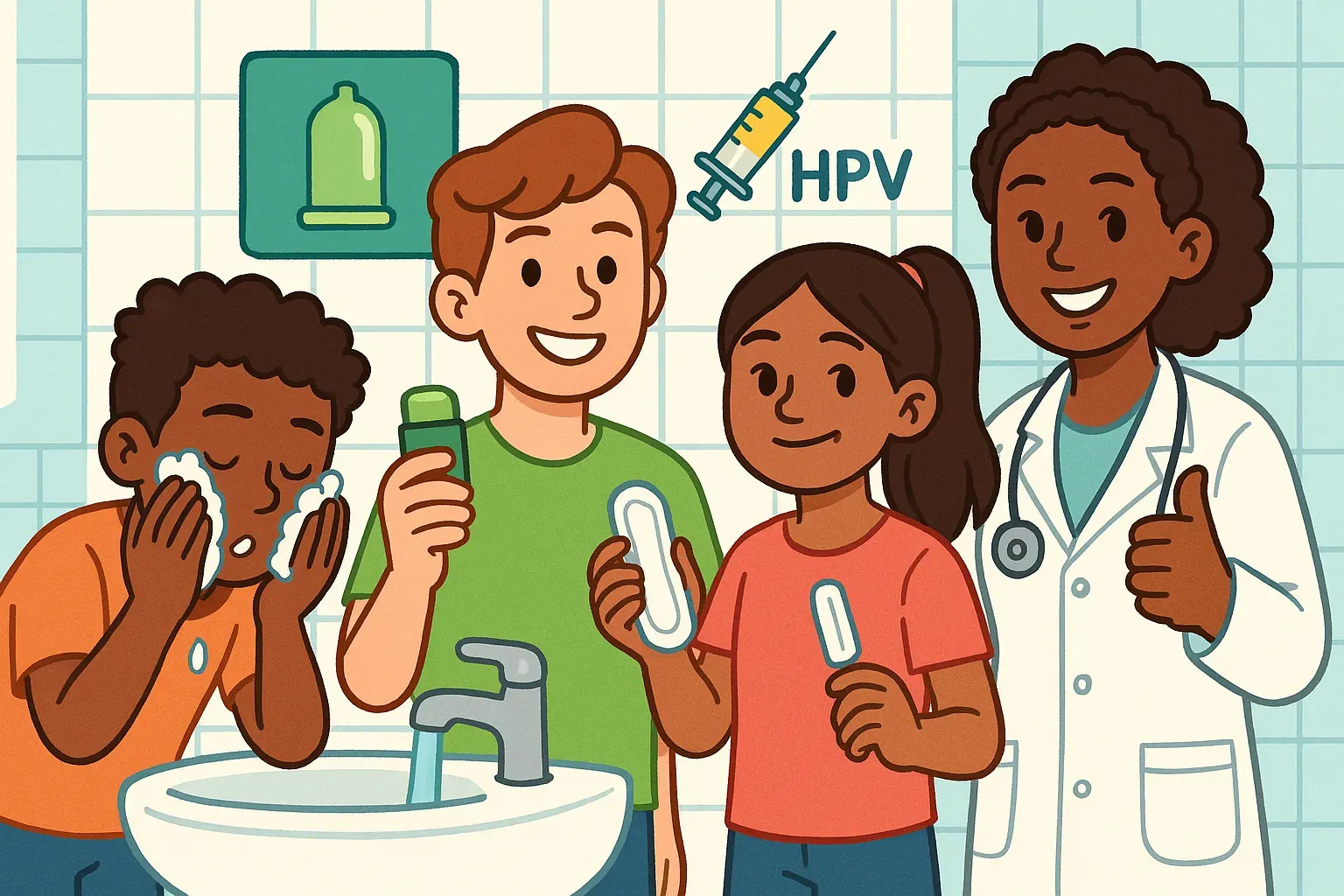
This is about keeping your body healthy and safe, especially the private parts.
- STIs (Sexually Transmitted Infections): These are infections you can get from sexual contact (like kissing, touching, or sex). Examples include HIV (a virus that weakens your body’s ability to fight sickness), chlamydia (a bacterial infection that can hurt reproductive organs), and HPV (a virus that can cause warts or, rarely, cancer). You can prevent them by using condoms, getting tested, or not having sex.
- Safe Practices: Using condoms, visiting a doctor for health check-ups, and getting vaccines (like the HPV vaccine to protect against some cancers) keep you safe. It’s like wearing a helmet when biking—it protects you!
- Hygiene: This means keeping your body clean to avoid infections. Wash your private areas with water and mild soap daily, and change underwear regularly. For girls, use clean pads or tampons during periods.
4. Consent and Relationships
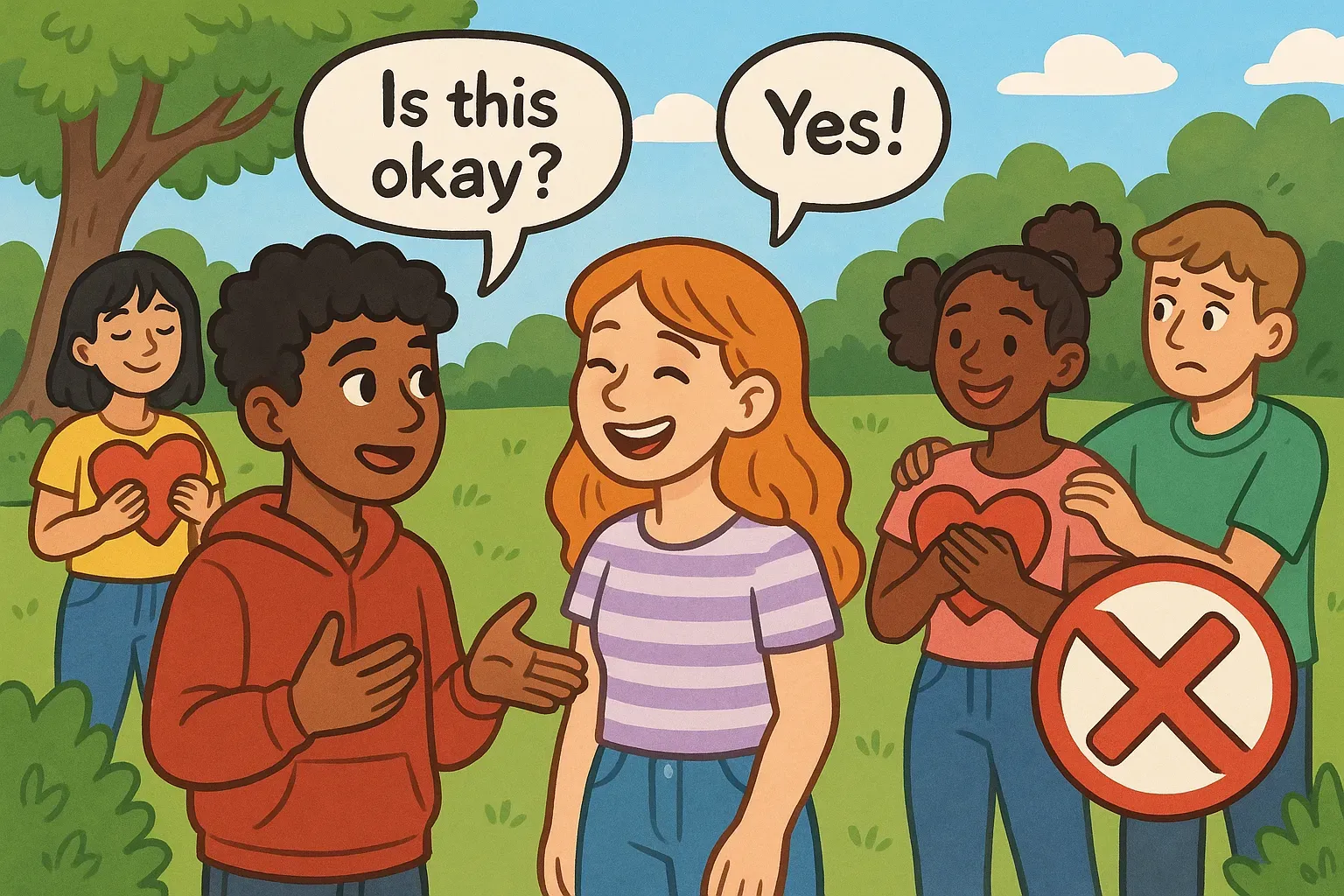
This is about making sure everyone feels safe and respected in relationships.
- Consent: This means both people agree to do something, like kissing or more, and feel happy about it. It’s like saying, “Yes, I’m okay with this!” You can say no anytime, and others must respect that. Consent is always clear, not forced, and can be changed.
- Healthy Relationships: A good relationship makes you feel safe, happy, and respected. You and your partner (like a boyfriend or girlfriend) support each other. Red flags are bad signs, like someone being mean, controlling, or not listening to you.
- Communication: This means talking openly about what you’re okay with, what you want, or what you don’t want. It’s like telling a friend you don’t want to play a game—they should understand and respect it.
5. Sexual Orientation and Gender Identity
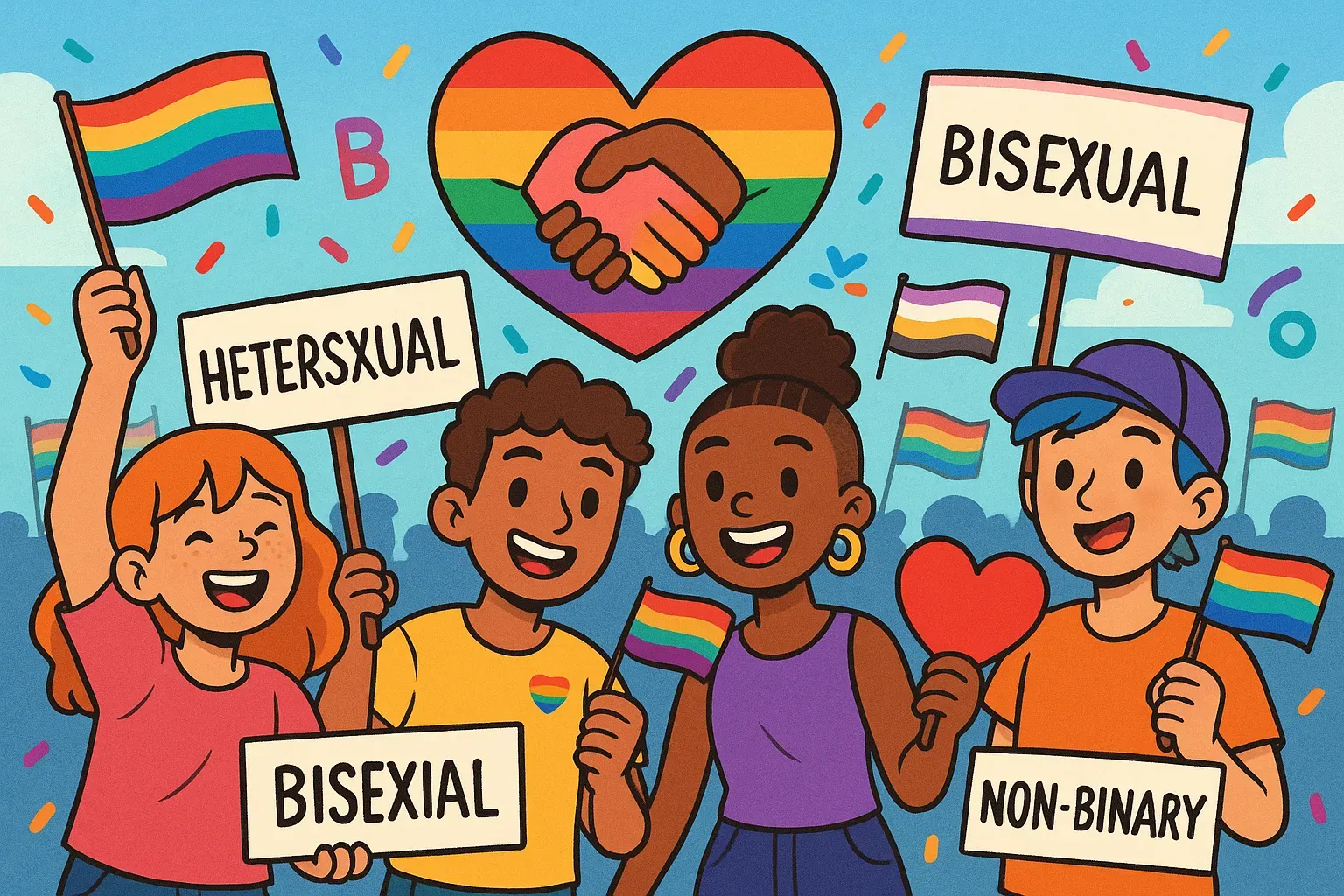
This is about who you love and how you feel about your gender.
- Diversity: Sexual orientation is who you’re attracted to. Heterosexual means liking the opposite gender (like boys liking girls). Homosexual means liking the same gender (like boys liking boys). Bisexual means liking both genders. Asexual means not feeling sexual attraction. Gender identity is how you feel inside about being a boy, girl, or something else. Cisgender means your gender matches the body you were born with. Transgender means your gender is different from your body at birth. Non-binary means not feeling fully like a boy or girl.
- Respect and Inclusion: Everyone deserves kindness, no matter who they love or how they identify. Being mean or judging others for being different is wrong.
6. Emotional and Social Aspects
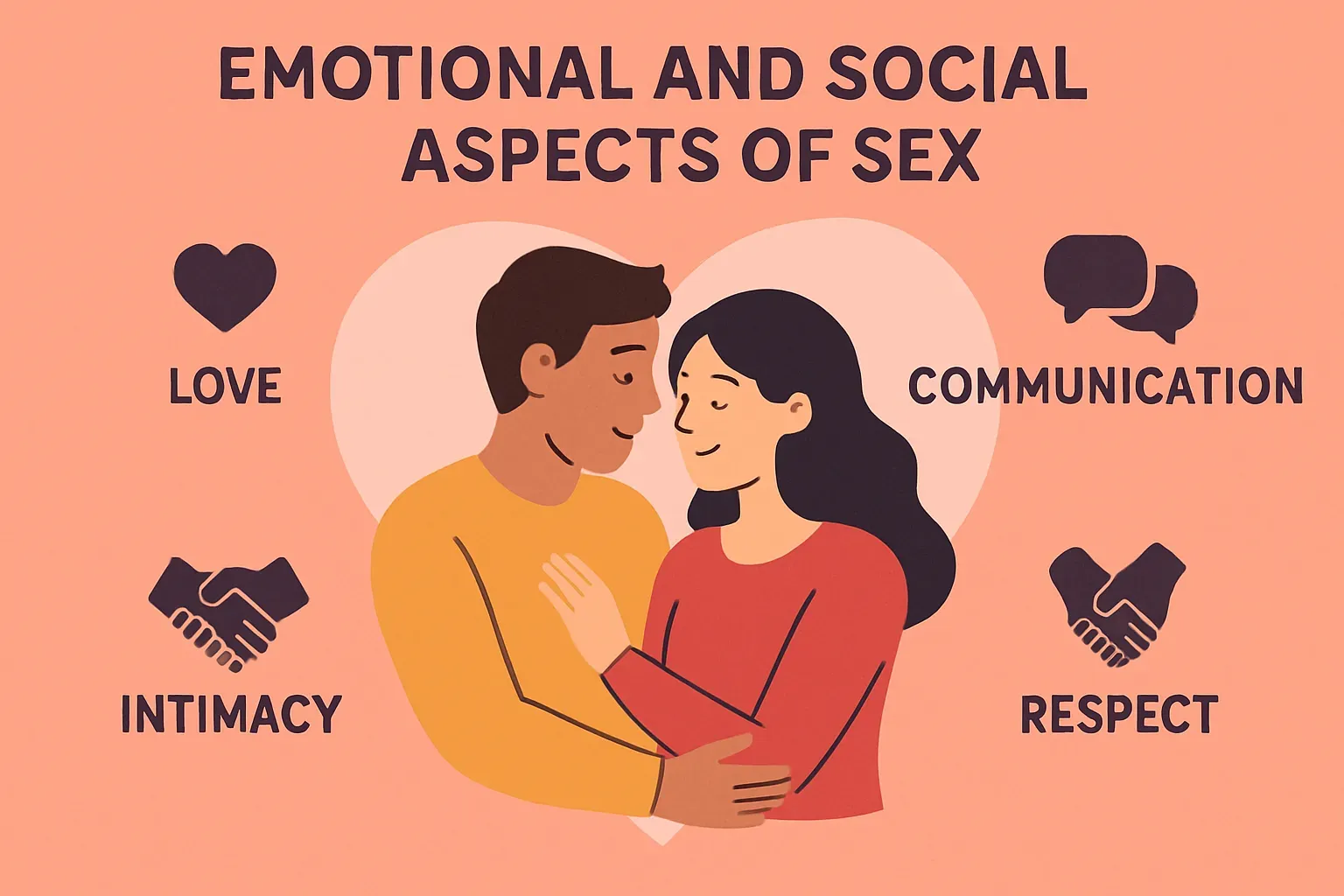
This is about how you feel about your body and how you deal with others.
- Body Image: This is how you see and feel about your body. Sometimes, TV or social media makes you think you need to look a certain way, but everyone’s body is unique and awesome. Loving yourself is important, especially with all the changes during puberty!
- Peer Pressure: This is when friends or others push you to do something, like kiss or have sex, before you’re ready. It’s okay to say no and do what feels right for you.
- Mental Health: How you feel about sex, relationships, or your changing body can affect your emotions. If you feel scared, sad, or confused, talk to a trusted adult, like a parent or counselor, for help.
7. Cultural and Legal Perspectives
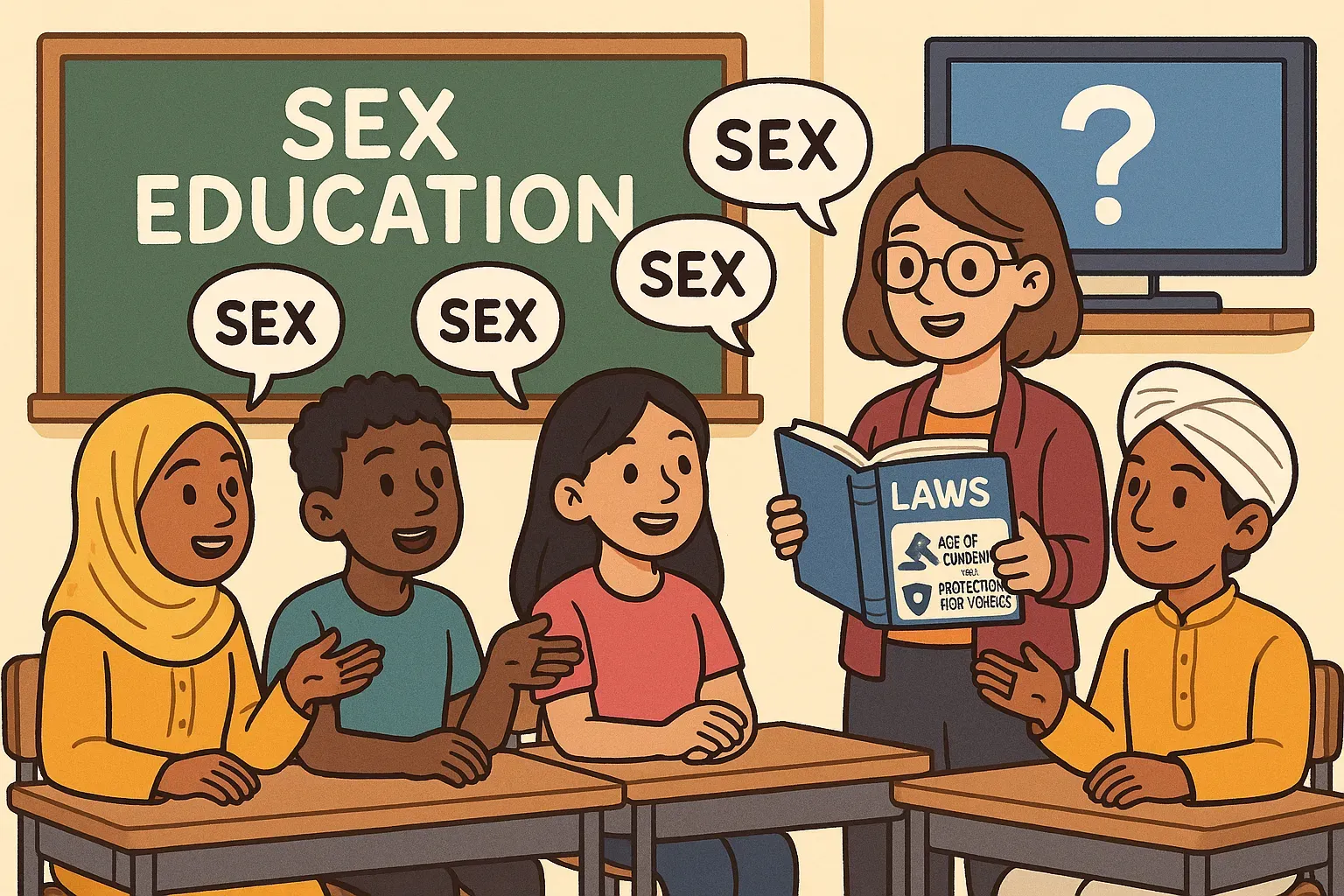
This is about how the world around you views sex and the rules about it.
- Cultural Influences: Different families, religions, or cultures have different ideas about sex. Some might say wait until marriage, while others are more open. It’s okay to ask questions about your family’s beliefs.
- Laws and Rights: Laws say how old you must be to have sex (called age of consent, often 16 or 18). There are also laws to protect you from sexual violence (like someone forcing you to do something sexual) and to give you rights, like choosing what happens to your body.
- Media Literacy: Movies, shows, or social media often show sex or relationships in unrealistic ways. Think critically about what you see—ask, “Is this real, or just for show?”
8. Risks and Decision-Making

This is about staying safe and making smart choices.
- Risk Awareness: Sex without protection (like condoms) can lead to unplanned pregnancy (a baby you didn’t plan for) or STIs. Knowing the risks helps you stay safe.
- Decision-Making Skills: Think about what you want and what’s safe. Abstinence (choosing not to have sex) is a great way to avoid risks. If you do have sex later, use protection and make sure it’s your choice, not someone else’s.
- Access to Resources: If you have questions or need help, talk to a doctor, school counselor, or trusted adult. There are also clinics or hotlines for advice about sexual health.
This is a lot of info, but it’s all about helping you understand your body and stay safe as you grow up. Puberty can feel weird, but it’s a normal part of becoming you! If you’re curious about anything, like how to deal with periods, acne, or other changes, ask a parent, teacher, or doctor. They’re there to help you figure it all out!
Thanks, and join our WhatsApp community for the latest updates.

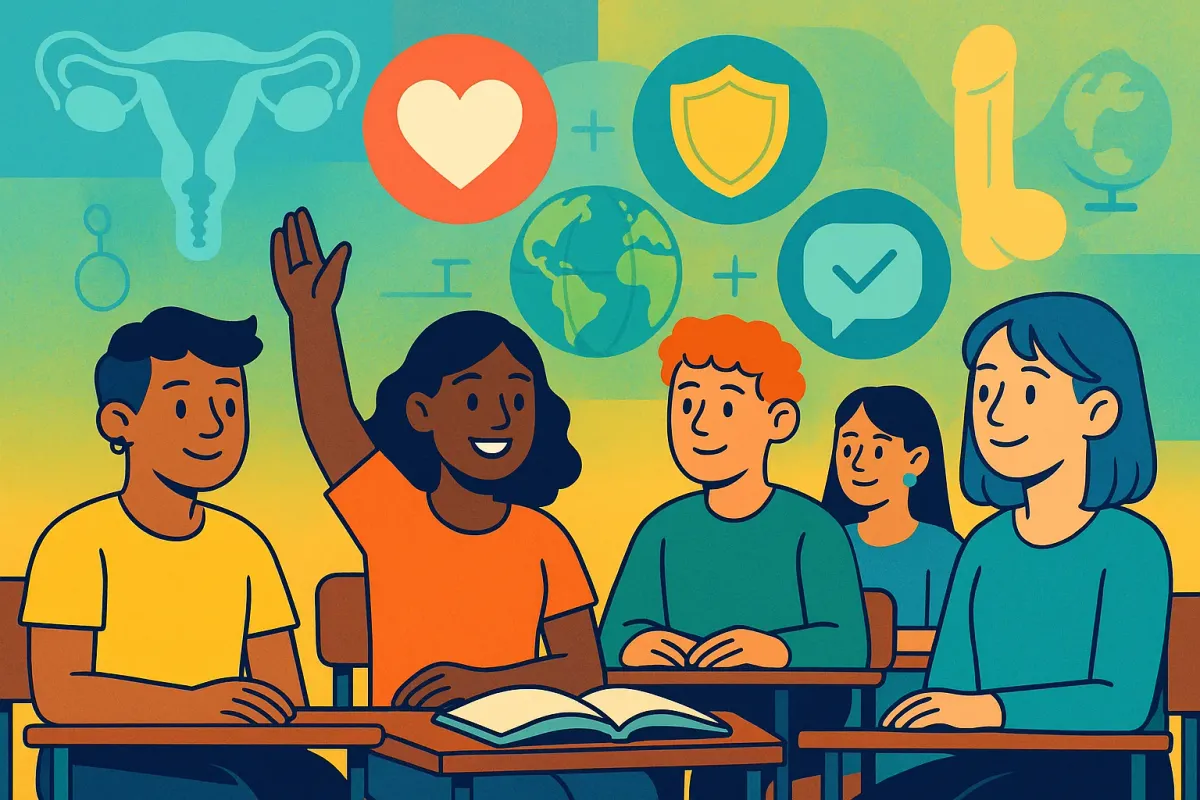
Thanks, and share.



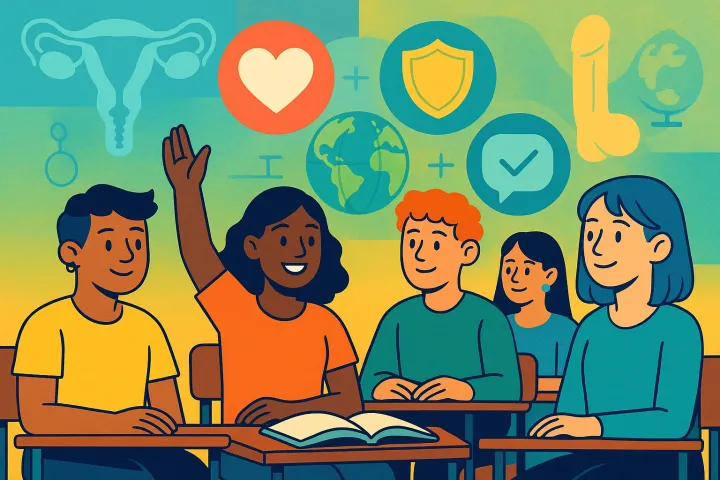

Comments ()